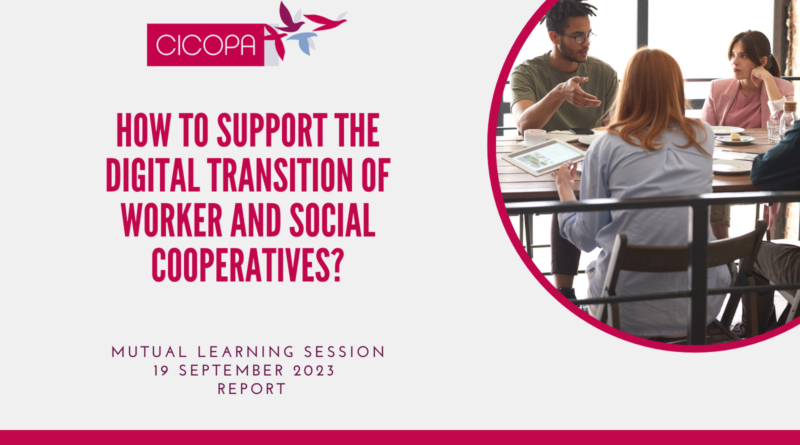Cooperatives and Tech: How can federations support the digital transition of worker and social cooperatives?
13 October 2023
On 19 September 2023, CICOPA organised a Mutual Learning Session (MLS) on the topic of Cooperatives and Tech: How can federations support the digital transition of worker and social cooperatives.
With the participation of around 49 members from 18 countries around the globe, CICOPA tackled the issue of digital transformation and the challenges and opportunities emerging from digital transition for workers and social cooperatives.
The session was moderated by Francesca Martinelli, coordinator of the working group on Non-Standard and Platform Work of CECOP, CICOPA’s regional organisation for Europe.
Three speakers offered a detailed overview of their experience in relation to digital transition:
- India: the experience of SEWA Cooperative Federation, presented by Divyaa Gupta
- Argentina: the experience of FACTTIC, presented by Neto Licursi
- Italy: the experience of Confcooperative Lavoro e Servizi, presented by Roberto Vogliolo
The speakers approached the topic from different points of view, the inclusion and accessibility of the digital sphere by women workers, as well as the opportunities and challenges that this transformation presents for cooperatives in the tech sector and all other cooperatives that must adapt to technological transformation to keep up with market trends.
Two main challenges have been identified in accompanying the digital transformation of cooperatives. On one side, a need for an adequate infrastructure to advance in the access, use, or creation of appropriate digital tools that respond to the needs of the cooperatives. On the other side, a need for upskilling and reskilling of the workforce.
To do so it is important to adopt an agile approach to adapt quickly to changes and a based-up approach thus developing tools that meet the specific needs of the cooperatives they are built for.
The speakers have shared some of the approaches their federations in India, Argentina and Italy developed to accompany digital transformations, such as investments, training, networking platforms, as well as encouraging the use of open software tools to benefit the community.
It resulted that Federations at the national or global level can play a key role in guaranteeing the availability, accessibility, and affordability of information when it comes to digital transformation. As well as in building an enabling environment by campaigning for specific policies for a fair and inclusive transition, such as inclusive policies or policies to ensure data protection and accessibility or to regulate cross-border market inequalities… Federations can as well contribute to increase the knowledge by, for example, transferring the experiences in the network.

